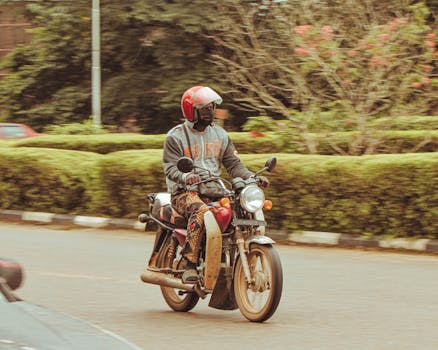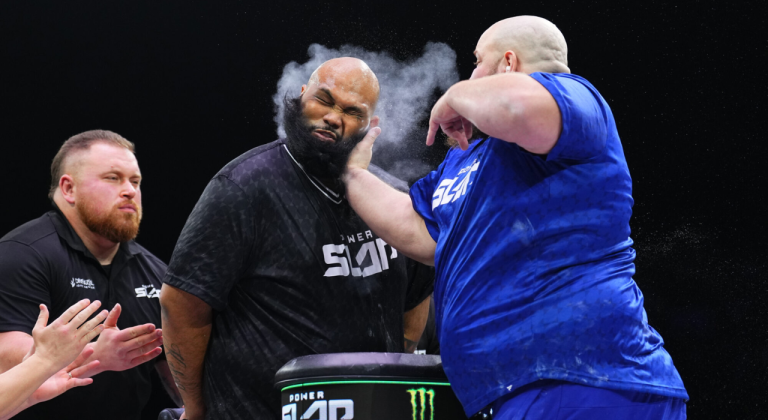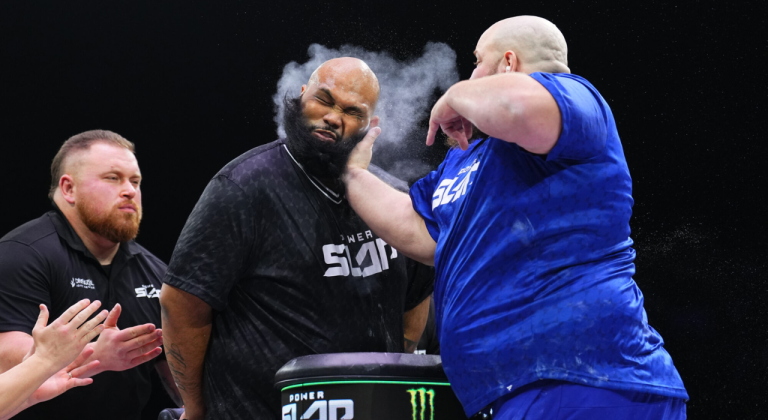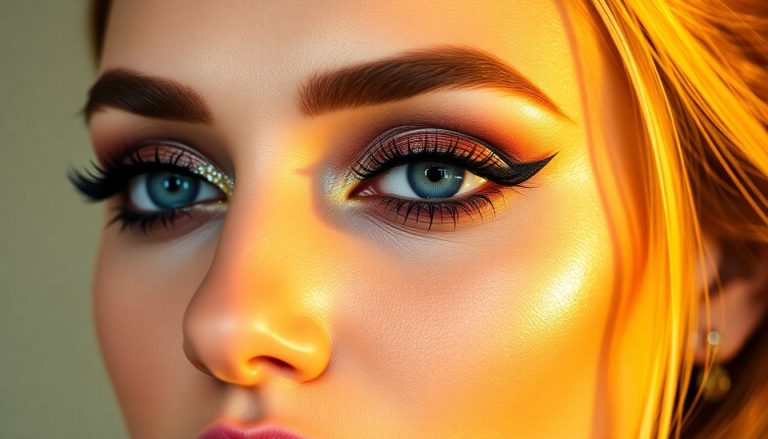Takeaways
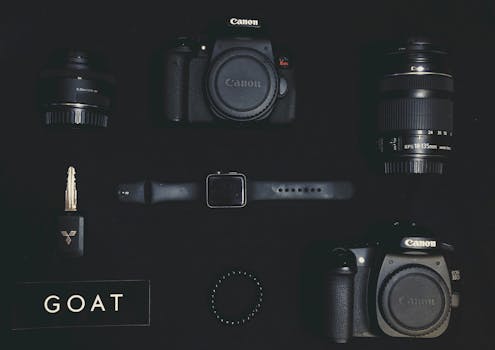
- Understand the latest technological advancements in image sensors, autofocus systems, and connectivity options.
- Learn about the best cameras for different types of photography, including travel, wildlife, and portrait photography.
- Compare popular models from leading brands like Canon, Nikon, Sony, and Fujifilm.
- Get insights on what to look for when purchasing a new camera to meet your specific needs.
The Evolution of Digital Cameras
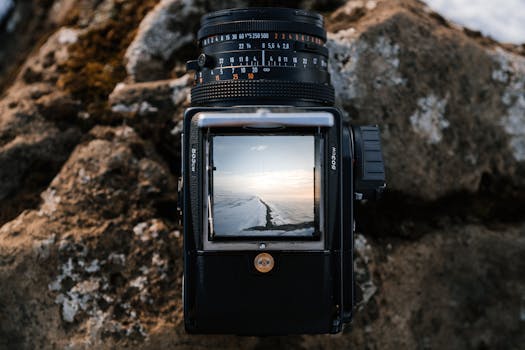
Advancements in Image Sensors
One of the most significant advancements in the realm of digital cameras is the improvement in image sensor technology. Manufacturers are continuously innovating in sensor design to provide better low-light performance, dynamic range, and overall image quality.
For instance, many new cameras are now equipped with full-frame sensors that allow for greater detail retention and color accuracy. Brands like Sony and Canon have introduced models that utilize advanced backside-illuminated (BSI) sensors, which enhance light capture, resulting in clearer images even in challenging lighting conditions.
Additionally, the rise of medium format cameras has made high-resolution photography more accessible, with sensors exceeding 100 megapixels becoming more common.
Enhanced Autofocus Systems
The autofocus systems in digital cameras have seen remarkable improvements, making it easier to capture sharp images of fast-moving subjects. In 2023, many cameras feature advanced hybrid autofocus systems that combine phase detection and contrast detection, providing faster and more accurate focusing.
Eye-tracking technology has also become a standard in many models, ensuring that portraits are sharp, especially when photographing people or animals. Cameras from brands like Nikon and Panasonic are pushing the envelope with AI-driven autofocus that can detect and focus on various subjects, including pets and vehicles.
Connectivity and User Experience
Modern digital cameras are not just about capturing images; they are also about seamless connectivity. In 2023, Wi-Fi and Bluetooth capabilities have become standard features, allowing photographers to instantly share their work on social media or transfer images to smartphones and tablets for editing.
Moreover, many cameras now come with companion apps that enhance user experience, providing remote shooting capabilities and real-time image transfer. This connectivity trend signifies a shift towards a more integrated approach to photography, where sharing and editing are as important as capturing the perfect shot.
Camera Reviews: Top Picks of 2023

Best DSLR Cameras
Despite the surge of mirrorless technology, DSLRs remain popular among many photographers. The Canon EOS 90D is a standout model, featuring a 32.5 MP sensor, excellent battery life, and a robust build. Its dual pixel autofocus system ensures quick and accurate focusing, making it ideal for both photography and video.
The Nikon D7500 is another excellent choice, offering a 20.9 MP sensor, 4K video capabilities, and a user-friendly interface. It’s perfect for enthusiasts who want a reliable camera for various shooting conditions.
Best Mirrorless Cameras
Mirrorless cameras continue to gain traction for their compactness and impressive capabilities. The Sony A7 IV is a top contender in the full-frame category, featuring a 33 MP sensor, outstanding autofocus, and excellent video features, making it suitable for hybrid shooters.
For those seeking an APS-C option, the Fujifilm X-T4 is highly regarded for its color science, in-body stabilization, and retro design. It’s a favorite among street and travel photographers.
Best Compact Cameras
Compact cameras are ideal for travelers and casual photographers. The Sony ZV-1 is designed for vloggers, featuring a 20 MP sensor, fast autofocus, and a flip-out screen. It’s easy to carry and offers great video capabilities.
The Canon G7 X Mark III is another excellent compact option, known for its image quality and versatility, making it a favorite among content creators and travel enthusiasts alike.
What to Consider When Buying a New Camera

Skill Level
Beginners may prefer entry-level DSLRs or mirrorless cameras that offer user-friendly modes and guides. Advanced photographers might look for feature-rich models that provide manual control and customization options.
Photography Style
Your photography style significantly influences your choice. If you enjoy wildlife photography, consider models with fast autofocus and burst shooting capabilities. For portrait photographers, cameras with excellent color rendition and skin tone accuracy are essential.
Budget
It’s crucial to set a budget before shopping for a camera. While it’s tempting to go for high-end models, many mid-range cameras offer impressive features without breaking the bank. Additionally, don’t forget to allocate funds for accessories like lenses, tripods, and bags.
Conclusion
The digital camera market in 2023 is vibrant and diverse, with options catering to every type of photographer. Whether you’re a seasoned professional or just starting, there’s a camera out there that perfectly suits your needs. By understanding the latest advancements and knowing what to look for, you can make an informed decision that enhances your photography journey.
FAQs
1. What is the best digital camera for beginners in 2023?
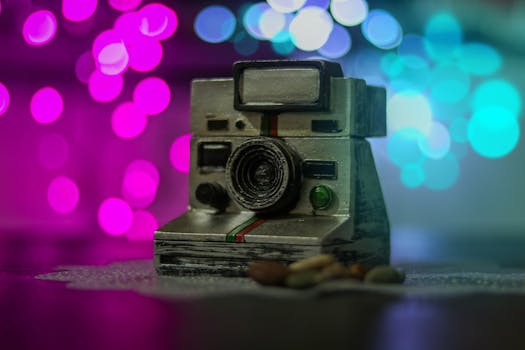
2. Are mirrorless cameras better than DSLRs?
Mirrorless cameras offer advantages such as lighter weight, faster shooting, and often better video capabilities, but DSLRs still excel in battery life and optical viewfinders.
3. What should I consider when upgrading my camera?
Consider your current needs, such as improved autofocus, better low-light performance, or specific features like 4K video if you’re shooting more video content.
4. How important is lens selection?
Lens selection is crucial, as different lenses can drastically affect your photography style and the types of shots you can achieve. Invest in quality lenses that suit your photography needs.
5. Can I use my smartphone for professional photography?
Smartphones have come a long way and can produce stunning images; however, dedicated cameras generally offer better quality, versatility, and control.


